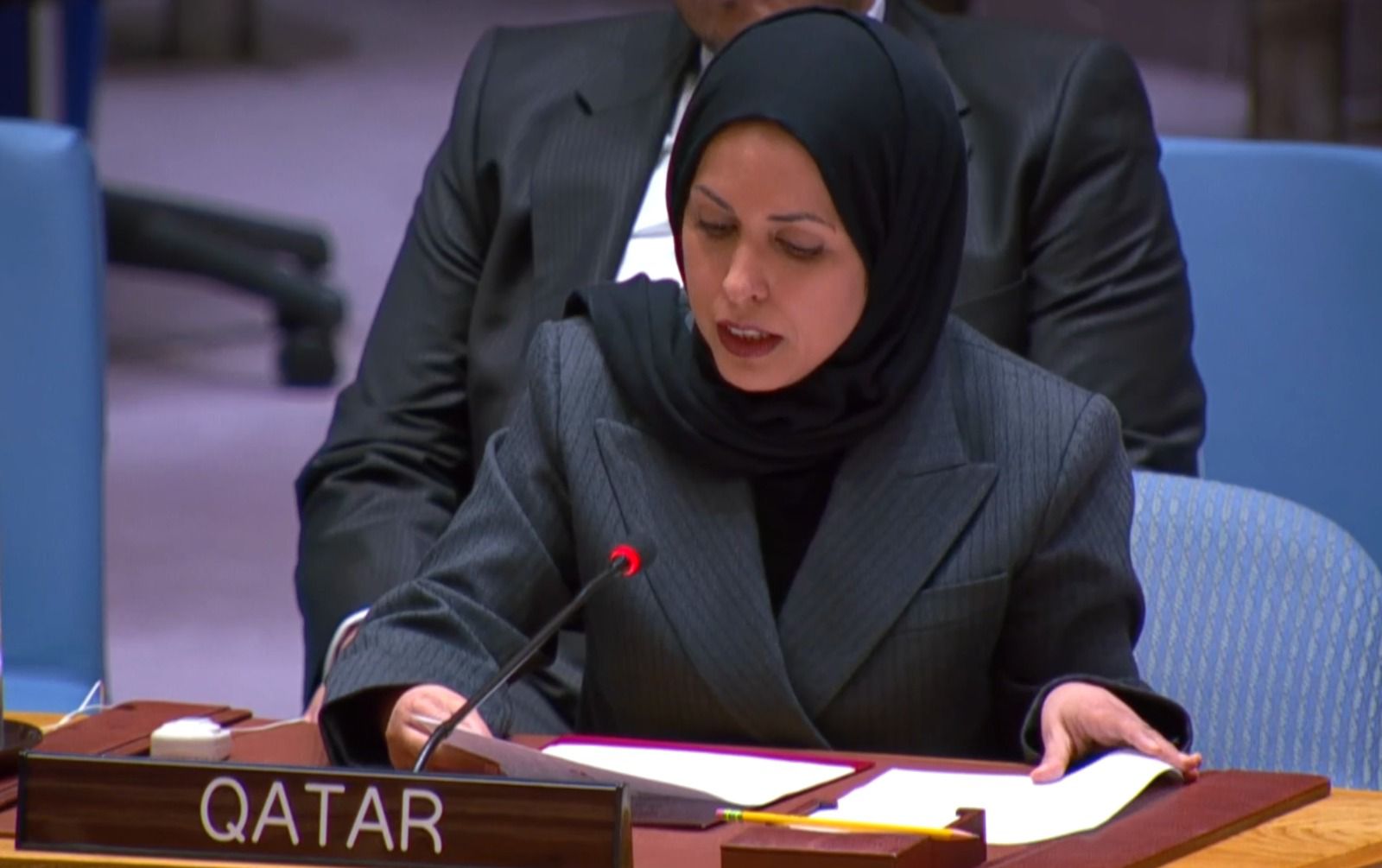Qatar Highlights That Commitment to Protecting Civilians Means Avoiding the Use of Food as a Weapon

New York, May 23
The State of Qatar affirmed that upholding the principle of protecting civilians requires the rejection of starving them or using food and humanitarian aid as a weapon of war.
This came in the State of Qatar’s statement, delivered by HE Permanent Representative of the State of Qatar to the United Nations Sheikha Alya Ahmed bin Saif Al-Thani. The statement was delivered during the UN Security Council’s open debate on the protection of civilians in armed conflict, held at the UN headquarters in New York.
Her Excellency noted that this debate came at a time when the world is witnessing increasing complexity and a significant decline in civilian protection during armed conflicts, due to the failure to adhere to the principles of international law and international humanitarian law, including the Geneva Conventions and their Additional Protocols. She added that Qatar welcomes the UN Secretary-General’s annual report, which highlights that the greatest threat to civilian protection today is not the absence of laws, but rather the failure to comply with them or their selective application, something civilians have to face the consequences of.
She emphasized that Qatar has adopted a clear strategy and made substantial and ongoing efforts in conflict prevention, mitigation, and peacebuilding across various regions of the world, in line with its firm commitment to international law and humanitarian law, especially the four Geneva Conventions and their Additional Protocols, which have been incorporated into Qatar’s national legislation.
Her Excellency noted that Qatar’s commitment to the principle of the Responsibility to Protect aligns with its strong belief in international cooperation to uphold collective security, and its respect for international law, the UN Charter, and relevant resolutions.
Her Excellency further stressed that the Gaza Strip was experiencing an unprecedented humanitarian catastrophe following the resumption of Israel’s aggression, in blatant defiance of international efforts to promote peace, particularly the ceasefire agreement reached through the efforts of Qatar, Egypt, and the United States last January.
Her Excellency said that Israeli attacks continue to target civilian infrastructure, including hospitals, schools, and residential areas, constituting a clear violation of international humanitarian law and the Fourth Geneva Convention. The Israeli government’s obstruction of humanitarian aid to Gaza is exacerbating the humanitarian crisis in the Strip, which is facing severe food shortages due to the ongoing closure of border crossings by Israeli occupation forces for the past two months, as reported by the UN.
Her Excellency renewed the State of Qatar’s call on the international community to compel Israel to ensure the safe, sustained, and unimpeded entry of humanitarian aid into all areas of Gaza. She stressed the urgent need to end the war on Gaza to prevent further humanitarian deterioration and to move forward in good faith toward achieving comprehensive, just, and lasting peace in the region.
Her Excellency also noted that Qatar and Egypt have reaffirmed their continued, coordinated efforts alongside the United States in mediation to alleviate the suffering of civilians and to create the conditions necessary for a comprehensive truce that would lead to an end to the war and its humanitarian disaster.
Finally, Her Excellency reiterated Qatar’s emphasis on the importance of conflict prevention and peaceful resolution efforts as essential components in ensuring better protection for civilians in conflict zones, thereby strengthening the resilience of local communities in the face of the devastating consequences of armed conflict.

